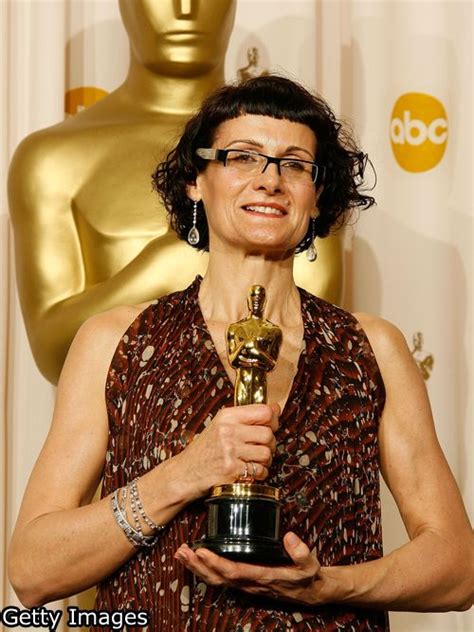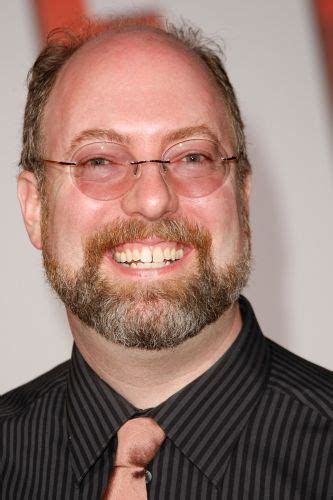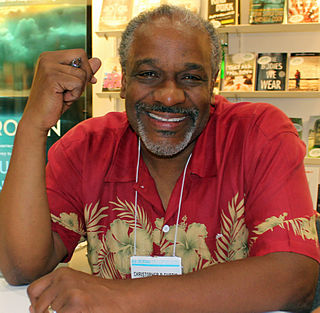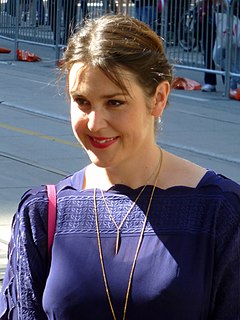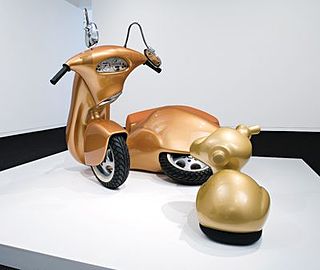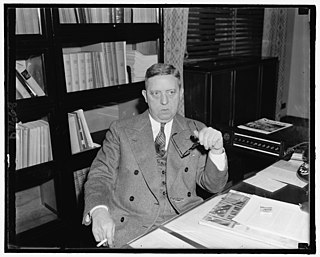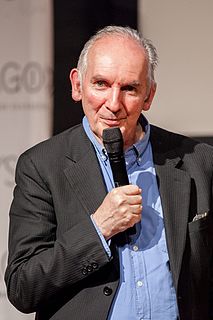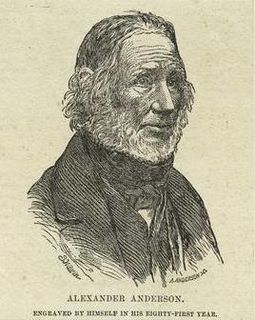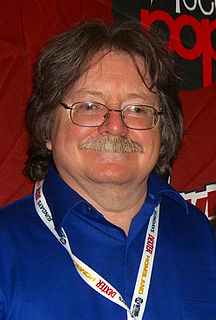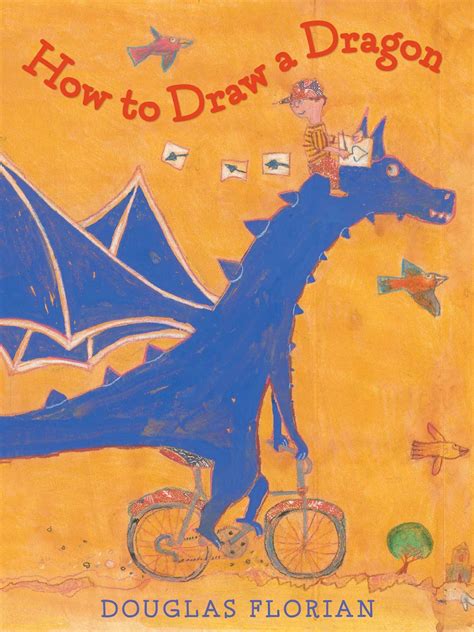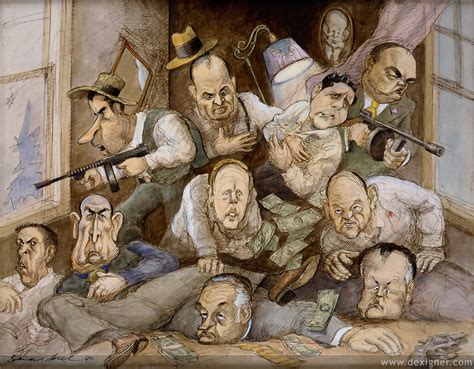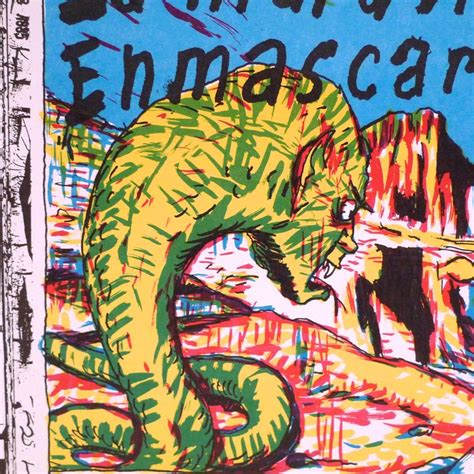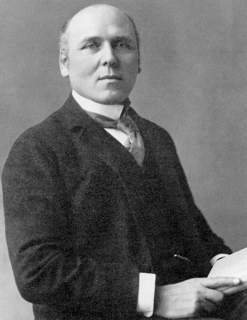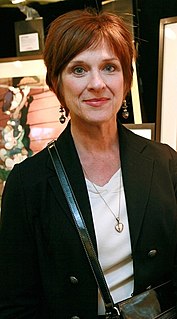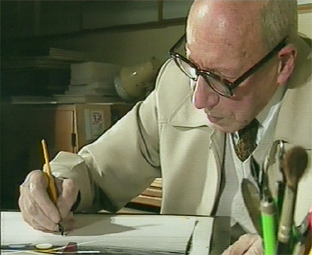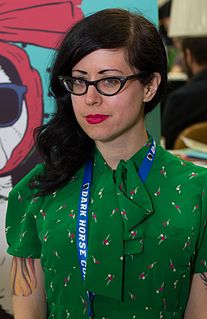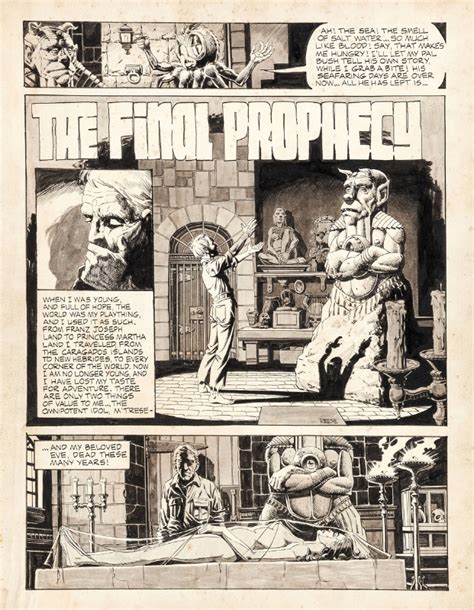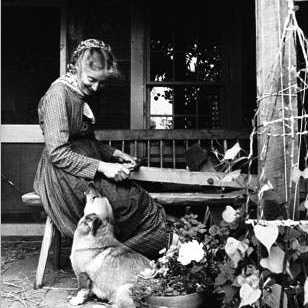A Quote by Dave McKean
I'm always thinking about story, and the development of ideas or images, so with all types of media, I'm simply trying to communicate the feelings and ideas in the story or characters in the most appropriate and effective way.
Related Quotes
The ideas always have to be in service of the story. And that's what Scott and the writers did - they weren't trying to beat you over the head with an idea; they had a story they wanted to tell, and they had ideas, so they used the story as a way of fleshing out the ideas. It all depends on where they want to go with it.
Every story has a point of view and whether it's by what one chooses to include or exclude from a story or whether it's a very specific agenda that is pushed, there is no such thing as objective media. Once you realize that it's more than just a marketplace of ideas, it's a battleground of ideas that are suppressed and the ideas that are pushed forward in the mainstream media are the ones that independent media has a chance to address. I think that the democratization of media in that way can be very helpful in allowing the truth to come out in a way that it might not on CNN or FOX.
One of my standard - and fairly true - responses to the question as to how story ideas come to me is that story ideas only come to me for short stories. With longer fiction, it is a character (or characters) coming to visit, and I am then obliged to collaborate with him/her/it/them in creating the story.
The Prodigal Son story is, I think, the greatest short-story ever written. It has such drama in it, such great characters, it's so clear and concise, and it's entertaining in the sense that everyone can relate to it. But you have no doubt what our Lord was trying to communicate in the heart of that story. So the truth was not sacrificed on the altar of entertainment in that case. And it can be.
Part of the job is knowing how to use this medium in the most effective way for the story you're telling, so for me, to pick a genre I want to do is a little harder. I would say it's more about thinking, 'What genre will work for what kind of story?' And then, when all of that comes, I embrace it and run with it.
Of course, even if the directors like my ideas or the designs I do, they may end up changing the story so much, that those characters have to change, or get cut out altogether, and that's just the way it is. Sometimes the directors are designers themselves, or they want to work with a character designer who will do things in their own distinct way - sometimes the most important thing I do is figure out what they don't want to do, by experimenting. Either way, whether they use my ideas or not, I get paid, so it's all good.
Now I'm in nonfiction. To me any given story has its appropriate form. There might be some story I get involved with that's begging to be a graphic novel, so that will have to be that way. There's always that matching of the content and the form, and that means everything to me. I spend years thinking about what that match is going to be before I can really make it work.
It's great to create a story and then to submit it to your editor and see what her reaction is to it. It's great to have your editor tell what her suggestions and ideas for the story are. It's great to explain to your editor why her ideas and suggestions are bizarre and to ask her why is she trying to ruin my story.
I feel like any actor should always be thinking about how to serve the story. The thing to be cautious of is trying to make too much of your "moment," or whatever. The story is a lot bigger than you, and you're there to help it along. The thing to think about is whether what you're doing is true to the moment and where the story's going, rather than going, "Here are my scenes. What can I try and do to make the most of them?"






